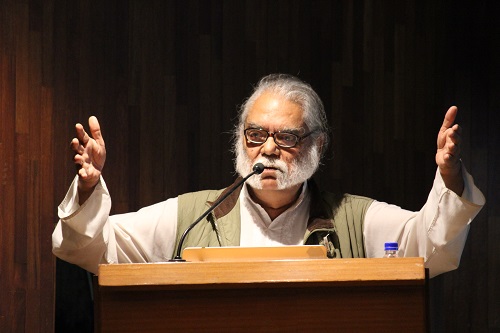
India being a signatory to the “Brasilia Declaration on Road Safety”, is committed to reducing the road accidents by 50% by 2020. And yet the country continues to account for the highest accidents in the world, the number increasing from 4.89 lakh in 2014 to over 5 lakh in 2015. More than 1.48 lakh people are killed each year.
To substantially improve this dismal situation, a Group of Ministers (GOM) reviewed the current Motor Vehicle Act (1988) and the Government drafted a Motor Vehicle (Amendment) Bill 2016 based on their report. The Bill was then referred to a Parliamentary Standing Committee (PSC) on Transport, Tourism and Culture for a review. The Ministry of Road Transport & Highways (MoRTH) will now table an updated Bill with the recommendations of the PSC in the Budget Session.
The Bill seeks to bring about a complete overhaul in the old Motor Vehicle Act 1988 while trying to safeguard interests of all road users. In the present Motor Vehicle Act, there are 223 Sections out of which the Bill aims to amend 68 sections. The Bill also proposes insertion of 28 new sections. The amendments mainly focus on issues relating to improving road safety, citizens’ facilitation while dealing with the Transport Department.
One of the suggested key amendments of the Bill is stricter punishments and an almost 5-fold increase in penalties against traffic violations like overspeeding, drink driving, driving without licence, riding without helmets, etc.
Some of the other suggested amendments include a Good Samaritan guidelines to help accident victims, streamlining the licensing and registration process at a national level, granting permission to the States to grant exemptions in stage and contract carriages, and to formulate schemes in waiver of the conditions of the Motor Vehicles Act, for promotion of public transport among others.

This talk was organised in this context on the 11th of March 2017 at Rachana Sansad, Prabhadevi, Mumbai. The speaker at the event, Dr. Dinesh Mohan shared his views on some of the keys issues related to improving Road Safety in the country. Prof. Mohan, of Indian Institute of Technology Delhi, Transportation Research & Injury Prevention Programme (TRIPP) is a member of several National and International Boards and Committees and has worked extensively in the field of transportation, road safety, injuries and related aspects.He stressed the need for better enforcement of existing provisions in the Motor Vehicles Act such as helmets, seat-belts, and drink-driving. More frequent and visible action by the Police was more essential, he added, than relying on stiffer fines and penalties. He suggested that the use of technology to prevent people with high blood alcohol levels from driving may prove effective and greater investments were needed for such innovations as part of the Make in India mission. He lamented the lack of safety experts in State and Central Government agencies, such as the NHAI, which was still making highways using outdated and unsafe designs. Prof. Mohan cited ample evidence that disproved that education or awareness campaigns work to change user behavior and stressed instead the need to have a safe system approach that ensured safety of users even when mistakes happen.
The talk was supported by Global Road Safety Partnership.